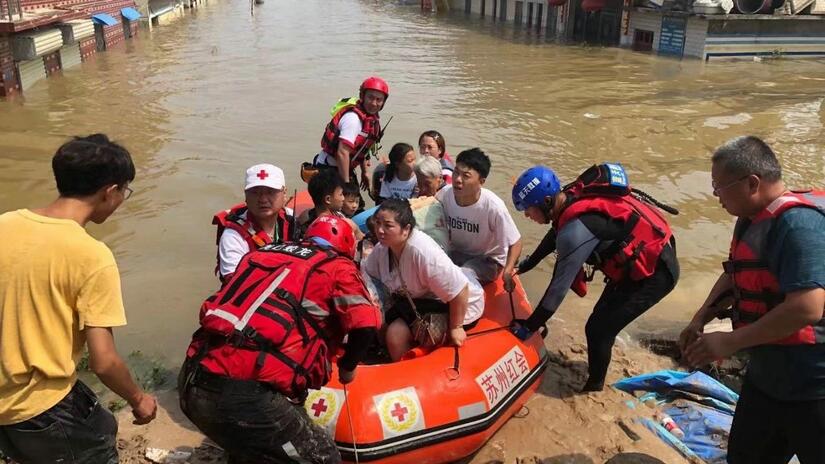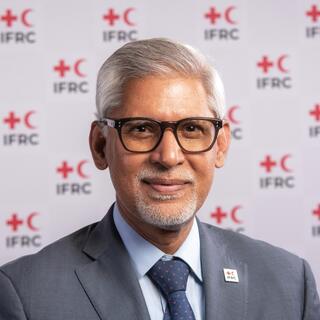Your Excellencies, ladies and gentlemen,
It is a pleasure to address the 2023 Belt and Road Ministerial Forum for International Cooperation in Disaster Risk Reduction and Emergency Management.
I congratulate the Government of China for their leadership on this initiative, which has marked significant achievements and efforts on disaster risk reduction and emergency management over the past ten years.
The IFRC welcomes our partnerships, including with the Government of China, that supports our Disaster Response Emergency Fund for the most efficient response to disasters and crises.
Friends and colleagues, we have witnessed a year of unprecedented disasters around the world, which have been further compounded by climate change and geopolitical conflicts.
Global humanitarian needs are rising at an alarming rate.
These needs are vastly outstripping the resources available to address them.
The human costs of disasters and crises remains unacceptably high.
As the world’s largest global humanitarian network, with a unique global and local reach, the IFRC has been supporting the National Societies in impacted countries to respond to the needs of crisis-affected communities.
The Government of China and the Red Cross Society of China have also been providing urgently needed humanitarian assistance to our IFRC network.
Still, more needs to be done.
Today, I have three important messages I would like to share with you.
Firstly, the climate crisis is the biggest multiplier in increasing disaster risks.
If humanity fails to act, hundreds of millions of people will put in a highly increased disaster risk because of the humanitarian impacts of the climate crisis.
There is an urgent need to integrate climate adaptation in emergency preparedness and response.
The IFRC is working with our member National Red Cross and Red Crescent Societies across the world to strengthen the coordination, preparedness and response to large-scale disasters and crises.
Secondly, investing in disaster risk reduction saves lives and livelihoods.
Over the last decade, some of the most recent—and often predictable—extreme weather events were the most deadly, costly, and devastating.
The IFRC network has been transforming our emergency response mechanisms to integrate early warning approaches that anticipate disasters so that people can act ahead of time to save lives and livelihoods.
This helps them recover and build resilience to the next disaster.
It is encouraging to see recent efforts in China to reinforce disaster prevention measures and scale up early warning and early action systems.
Finally, global solidarity and multi-sectoral collaboration is must to bring the disaster preparedness and emergency response to scale.
It will take joining forces to prepare for and effectively respond to the potential mega disasters.
No one organization can do this alone.
The Belt and Road Initiative on Disaster Risk Reduction and Emergency Management offers us a platform and opportunity to work together and confront the challenges of today and in the future.
I am especially pleased to see that localization and investment in local actors is included in this years’ Joint Statement.
The IFRC welcomes collaboration with the Government of China and other countries along the Belt and Road Initiative to reduce the humanitarian needs.
I wish you all a successful Ministerial Forum, and I wish you many positive discussions and outcomes from this important event.
Thank you.


